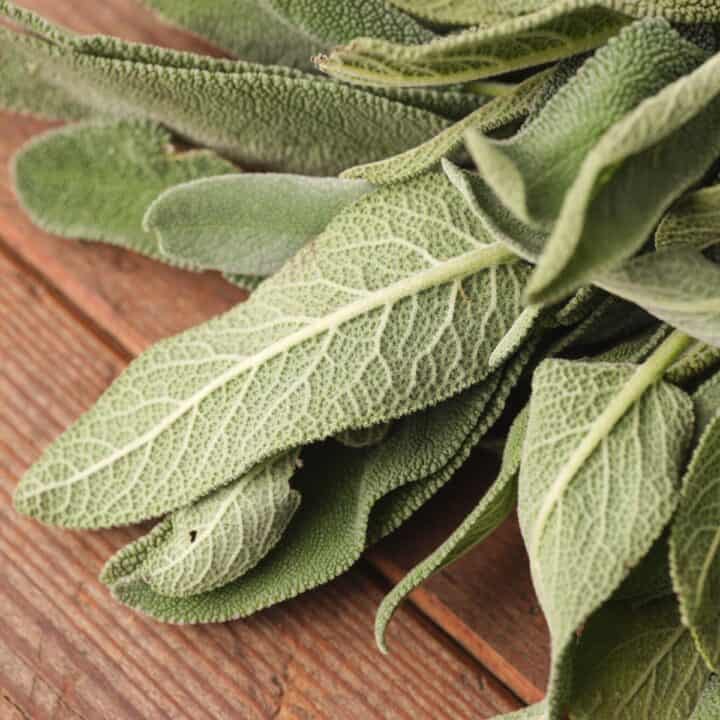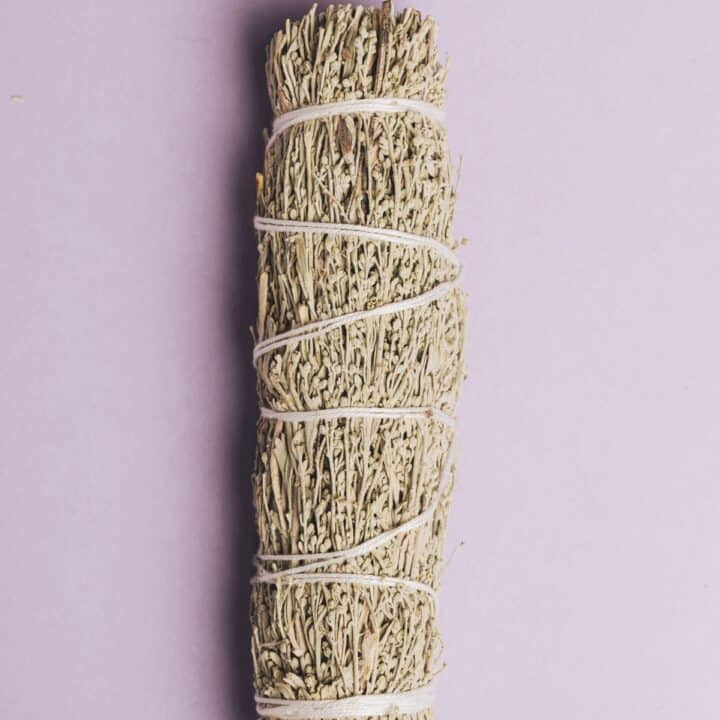What does bergamot smell like? Bergamot is a citrus fruit that is commonly used in perfumes, essential oils, and aromatherapy products. It has a unique aroma that is both refreshing and uplifting. In this post, we will explore its benefits and uses, and some interesting facts about this fascinating fruit.

Jump to:
What is Bergamot?
Bergamot (Citrus bergamia) is a small aromatic citrus fruit that is native to the Calabria region of southern Italy. It is a hybrid of sour orange and lemon, and it is grown primarily for its essential oil. Bergamot oil is extracted from the rind of the fruit and is used in a wide variety of products, including perfumes, soaps, and candles. It is also known as bergamot orange or the "prince of citrus".
What Does Bergamot Smell Like?
Bergamot has a complex aroma that is both citrusy and floral. It is often described as having a fresh, bright, and slightly bitter scent. Here are some of the main scent notes that you might notice when you smell bergamot:
Citrus: Bergamot has a bright, zesty citrus scent that is reminiscent of other citrus fruits like lime, lemon, and grapefruit.
Floral: There is a subtle floral note to bergamot that adds depth and complexity to its aroma.
Spice: Some people detect a spicy edge to bergamot, similar to the scent of black pepper or cardamom.
Sweet: Bergamot has a slightly sweet aroma that is balanced by its tartness.
Overall, bergamot has a refreshing and uplifting scent that is perfect for use in aromatherapy or as a mood booster in perfumes and other fragrances.
What Does Bergamot Taste Like?
Bergamot has a unique and complex flavor profile that can be difficult to describe. It is known for its distinctive tart and bitter taste, with a hint of sweetness and a floral undertone.
The flavor is often compared to that of a cross between a lemon and an orange, with relatively strong citrus notes, with a slight herbal or spicy note.
Bergamot is used as a flavoring agent in a variety of products, including Earl Grey black tea, confectionery, and liqueurs. It is also used in cooking to add a citrusy, slightly bitter flavor to dishes.
Overall, bergamot has a bright and refreshing taste that is an excellent choice for adding depth and complexity to a variety of recipes.

Aromatherapeutic Benefits of Bergamot
Bergamot has numerous aromatherapeutic benefits due to its refreshing and uplifting scent. Bergamot in its essential oil form (from its highly fragrant peel) is a wonderful way to experience its beautiful scent. Here are some of the most notable benefits of this very versatile scent:
Reduces stress and anxiety: Bergamot has been shown to have calming properties and can help to reduce feelings of stress, depression, and anxiety. It is great for relaxing nerves.
Improves mood: Bergamot is known for its mood-boosting properties and can help to improve feelings of happiness and well-being and lift a heavy heart or simply a bad day. It is a wonderful ally when it comes to maintaining optimum mental health.
Supports relaxation: The scent of bergamot can help to promote relaxation, and relieve tension and can be used to create a calming atmosphere in your home or office.
Helps with sleep: Bergamot can be used as a natural sleep aid and can help to improve the quality of your sleep.
Relieves pain: Bergamot's fresh citrus smell can be used to help relieve pain and can be particularly effective in reducing headaches and migraines.
Boosts energy: Bergamot's pleasant citrus scent is a great choice for boosting energy levels and can be used to combat feelings of fatigue and lethargy.
Uses of Bergamot
Bergamot is a versatile essential oil that has many uses in aromatherapy and natural health. Here are some of the most common ways that bergamot oil is used:
Skincare: Bergamot oil is a natural antiseptic and can be used to treat acne and other skin conditions.
Digestive health: Bergamot oil is often used to support healthy digestion and can help to relieve symptoms of indigestion and bloating.
Perfumes, colognes, and fragrances: Bergamot oil is a popular ingredient in the perfume industry due to its notable scent.
Deterrent: Mix bergamot essential oil with water and spray it on plants harmful to cats as a natural deterrent. Learn more: indoor plants safe for cats.
Medicinal Benefits of Bergamot
- Antioxidant properties: Bergamot contains high levels of antioxidants, which can help protect the body against oxidative stress and cellular damage. (Source)
- Lowering cholesterol: Bergamot has been shown to help lower levels of LDL (bad) cholesterol and increase levels of HDL (good) cholesterol, which can help reduce the risk of heart disease. (Source)
- Anxiety and depression: Bergamot essential oil is commonly used in aromatherapy to help reduce feelings of anxiety and depression, and promote relaxation. (Source)
- Digestive health: Bergamot can help promote healthy digestion by stimulating the production of digestive enzymes and reducing inflammation in the gut. (Source)
- Skin health: Bergamot oil has antibacterial and anti-inflammatory properties that can help promote healthy skin, and reduce acne and other skin irritations. (Source)
- Pain relief: Bergamot oil has been shown to have analgesic properties, which can help relieve pain and discomfort. (Source)
- Immune system support: Bergamot has immune-boosting properties and can be a positive influence and support the body's natural defenses against infections and illnesses. (Source)
- Oral health: Bergamot has antimicrobial properties that can help reduce the growth of bacteria in the mouth, which can help prevent tooth decay and gum disease. (Source)

Growing Bergamot
Growing bergamot can be a rewarding experience for gardeners, but it does require some specific conditions to thrive.
Bergamot is a perennial plant, meaning that it can live for several years and will grow back each year from the same root system. It is a member of the mint family and is native to Europe, but is now widely grown in other regions around the world.
Bergamot trees prefer a warm and humid climate, and they require well-draining soil that is rich in nutrients. If you live in a colder climate, you may need to grow bergamot in a greenhouse or indoors.
Bergamot trees can be propagated from seeds or cuttings, and they can take several years to mature and produce fruit.
Once your bergamot tree is established, it will require regular pruning to maintain its shape and encourage new growth. With proper care, your bergamot tree can produce fragrant and flavorful fruit that can be used in a variety of applications, from perfumes to cooking.
Pairing Bergamot
Bergamot's citrus-like fragrance pairs well with a variety of other fragrances and flavors. Here are some examples:
Lavender: The calming and floral scent of lavender pairs well with bergamot's bright and refreshing aroma, making it a popular combination in aromatherapy and skincare products.
Citrus: Bergamot's citrusy notes pair well with other citrus scents like lemon and grapefruit, creating a bright and invigorating aroma.
Spices: Bergamot's slightly spicy undertones make it a great complement to other warm and spicy fragrances like cinnamon, nutmeg, and clove.
Vanilla: Bergamot's floral and slightly sweet notes pair well with the warm and comforting aroma of vanilla, creating a cozy and inviting scent.
Tea: Bergamot is a popular choice for flavoring Earl Grey tea, and its citrusy and slightly bitter taste pairs well with the mild, floral notes of nearly any black tea.
Floral scents: Bergamot's floral undertones and distinctive scent make it a great match for other floral fragrances like rose, jasmine, and ylang-ylang, creating a complex and sophisticated aroma.
Tonka bean: Bergamot's fresh and citrusy notes can be balanced by the warm and sweet aroma of tonka bean, creating a unique and intriguing scent.

Interesting Facts About Bergamot
Here are some fascinating facts about bergamot that you might not have known:
- Bergamot is named after the Italian city of Bergamo, where it was first cultivated.
- Bergamot is a key ingredient in Earl Grey tea, which is flavored with bergamot oil.
- Bergamot is used to flavor many different types of food and beverages, including candy, chewing gum, and liqueurs.
- Bergamot is believed to have originated in Southeast Asia and was brought to Europe by Arab traders in the 12th century.
- Bergamot oil is used in traditional Italian folk medicine to treat a variety of ailments, including fevers, infections, and respiratory problems.
In Conclusion
Bergamot is a fascinating fruit with a complex and refreshing aroma. Whether you use it for aromatherapy, natural health, or perfumery, the smell of bergamot is a versatile and valuable fragrance that can add a bright and uplifting scent to your products. We hope this post has given you a better understanding of what bergamot smells like and how it is used!








Comments
No Comments